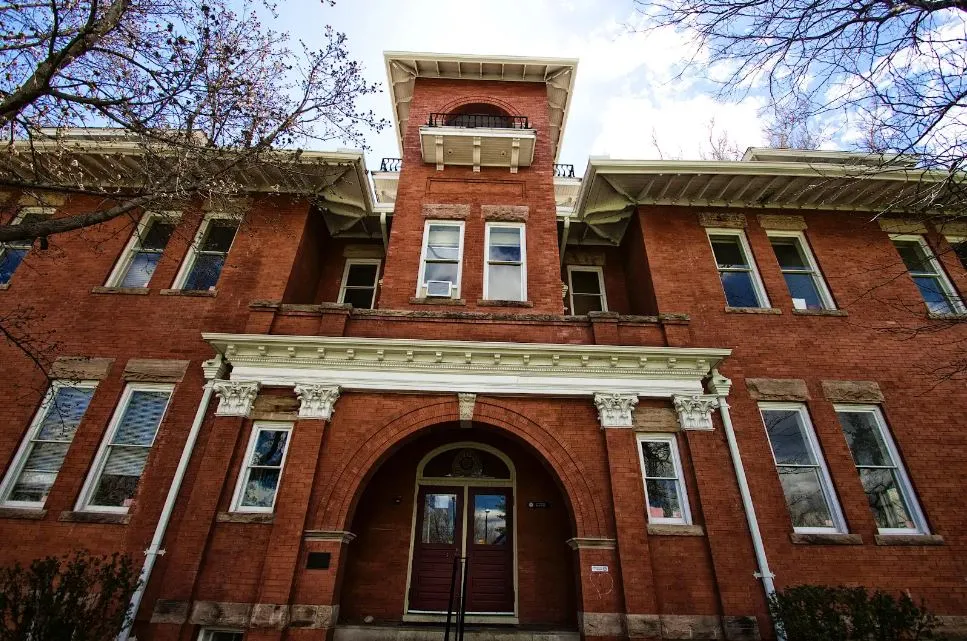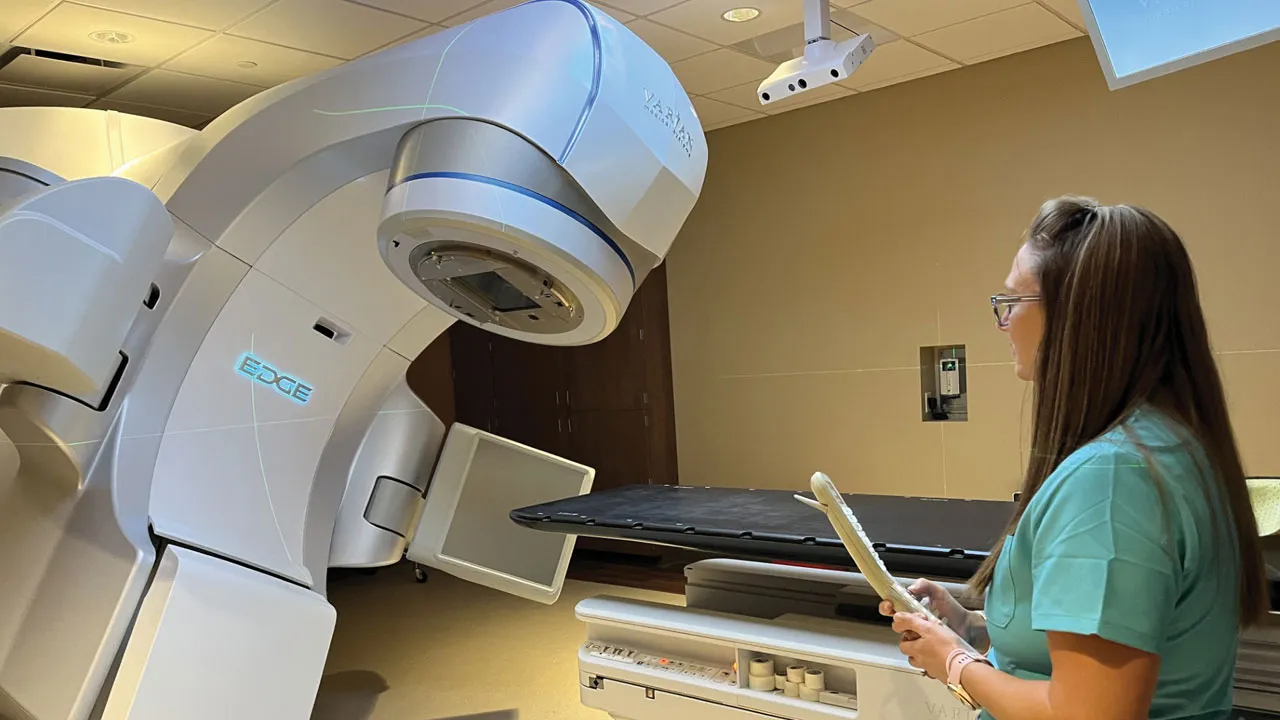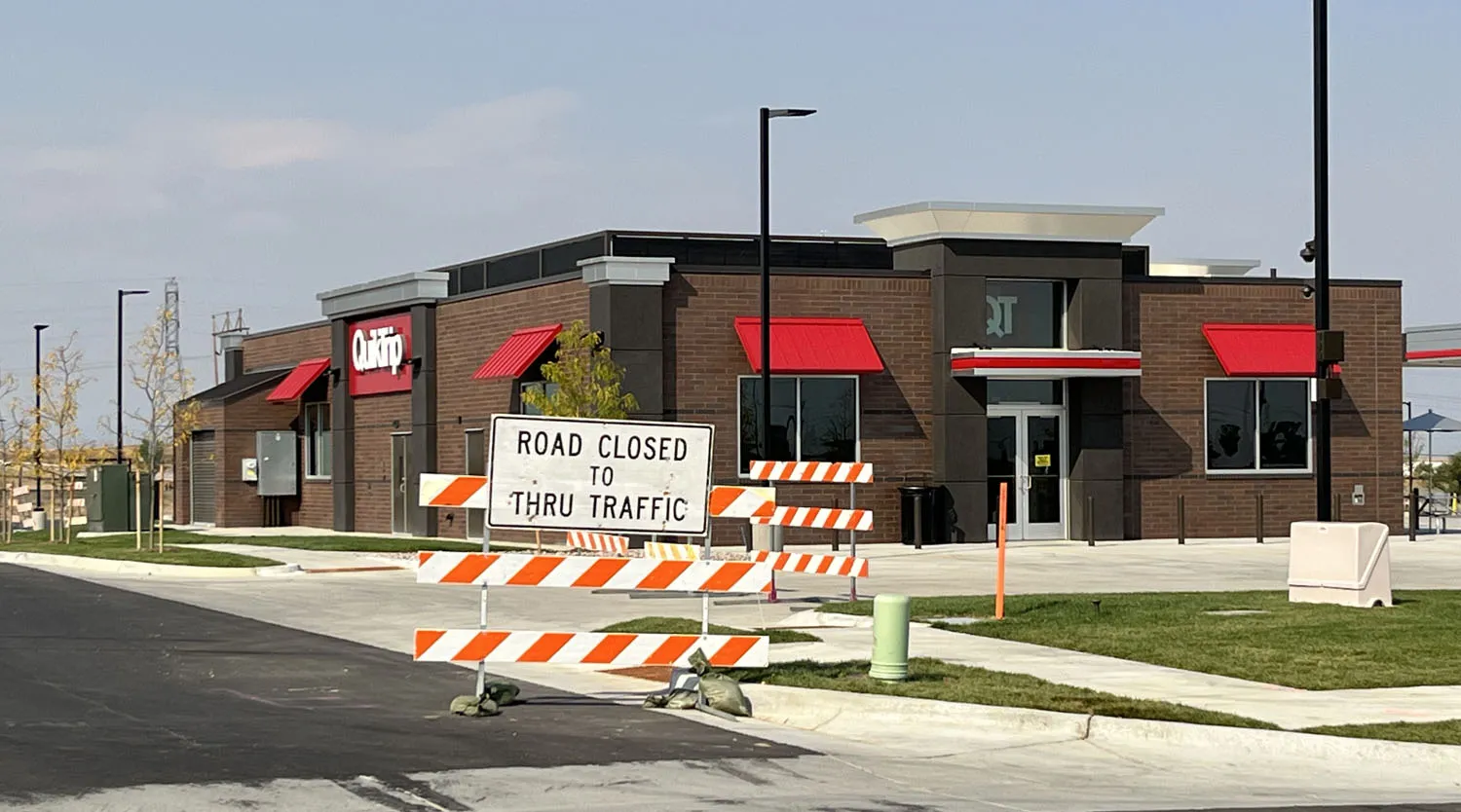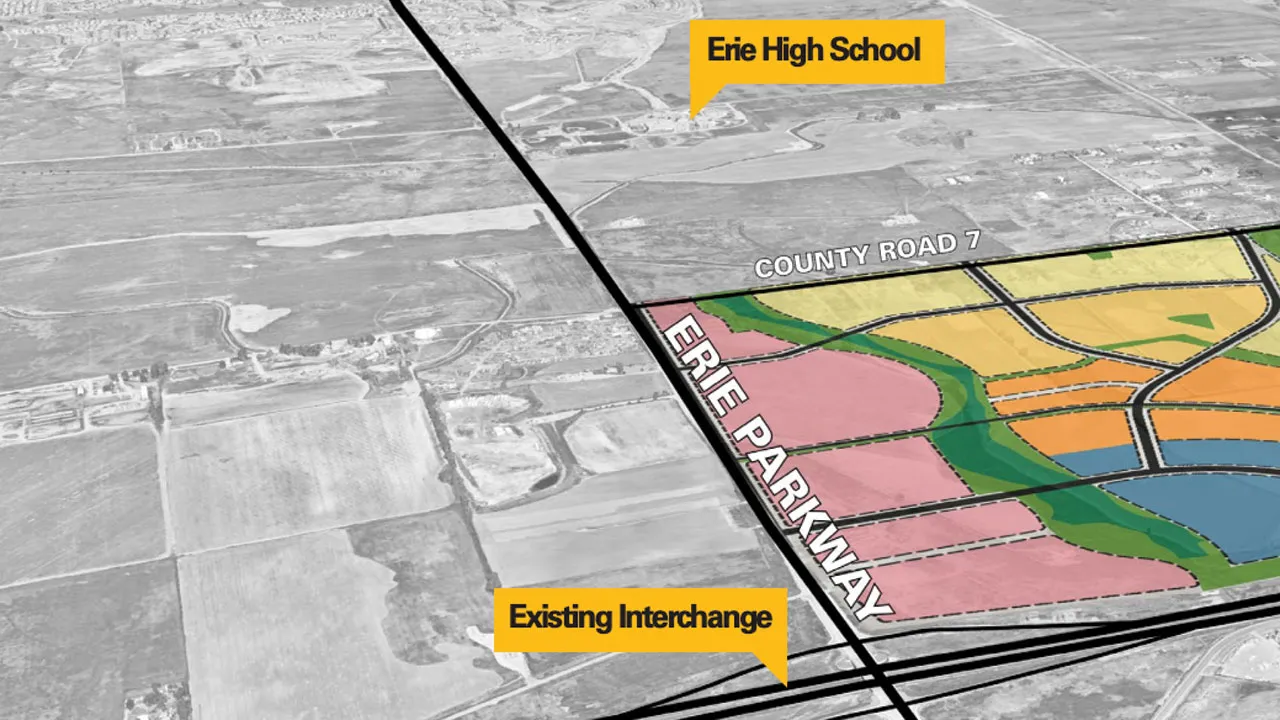Drive-thru coffee stays in its lane
Low overhead, high revenue among the perks
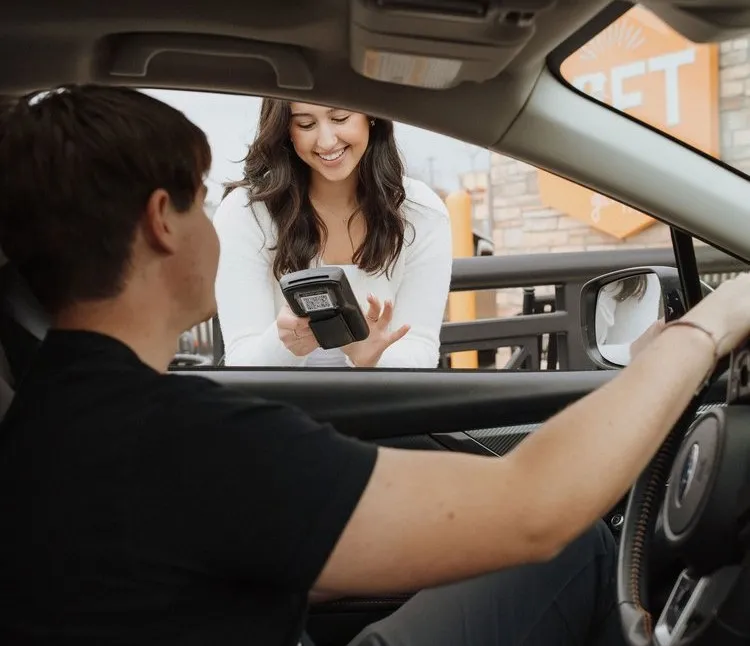
Say the word “coffeehouse,” and Baby Boomers might think of Greenwich Village hipster hangouts with folk guitarists, beat-generation poets and espresso. For younger folks, those comfy cafes were, and often still are, the places for cerebral conversations and latte-fueled study with books or laptops.
In the 1990s, however, patterned after the fast-food drive-ins that dated back to the Big Band and doo-wop eras but becoming exponentially more common in the 1970s, coffee companies such as Seattle-based Starbucks began helping commuting motorists perk up with steaming brews handed through driver’s-side windows.
And when the COVID-19 pandemic shut down the coffee cafes, contactless delivery at a drive-thru boomed, keeping the customers’ to-go cups and the owners’ profits full to the brim. Once those restrictions were lifted, just like working from home, the habit remained.
SPONSORED CONTENT
“During the pandemic, drive-thru was the easiest thing going, but now everyone wants drive-thru,” said Brandon Knudsen, who has built his Ziggi’s Coffee chain from one traditional indoor-seating coffeehouse at Fourth Avenue and Main Street in Longmont into a brand that was ranked on Entrepreneur Magazine’s Franchise 500 last year. Now headquartered in Mead, Ziggi’s has 86 locations open across 18 states, and more than 200 locations in various stages of development, with 50 set to open within the next year.
Ziggi’s explosive growth began when it began offering franchises in 2016. Even when a franchise owner closes a store, the franchise is usually scooped up quickly. That happened this year, when husband and wife Justin and Melissa Livingston, who already owned a Ziggi’s franchise in Broomfield, reopened a shuttered Ziggi’s in Louisville in late April. It was a natural fit because community-minded Justin Livingston also is founder of the Louisville-based Boulder County chapter of the nonprofit Guys Who Give, which donates $50,000 annually to local charities.
“I love our franchisees,” Knudsen said. “They’re having great success in their markets. When they call and want to open another store, that’s fantastic.”
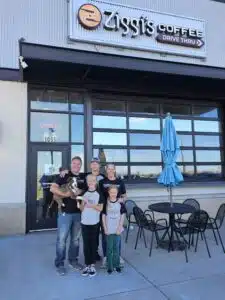
The success of chains such as Starbucks added impetus to the success of other drive-thrus, including Dutch Bros., The Human Bean and Scooter’s, each of which boasts hundreds of locations, and independents such as Blue Mug, with three stores in Greeley, and one location each of Still Waters Coffee in Greeley and Lift Coffee Bar in Johnstown.
Starting from scratch isn’t easy in any business. Knudsen should know.
“Our roots have always been in drive-thru,” he said. “Even though we started with the cafe on Main Street, it was not ever our intention to build a cafe.”
Knudsen’s wife, Camrin, had worked at The Human Bean’s original drive-thru spot in Ashland, Oregon, he said, “and we wanted to be a franchisee in Oregon but just couldn’t afford it.”
Besides, the coffee-crazed Pacific Northwest was already too saturated with java stands, so the couple dropped out of college and moved in with Brandon Knudsen’s sister in Denver in 2003 until they could open their own coffee shop in Colorado.
They purchased the Hava Java coffee and sandwich shop in Thornton, and Brandon coupled working there and helping his wife with their newborn while also holding down a six-day-a-week job at an ice cream plant.
Eventually the couple was approached by a coffee roaster who wanted to open a cafe with them under the name Gizzi’s. The coffeehouse opened in downtown Longmont on Aug. 5, 2004, but the roaster dissolved the partnership a year later, taking the name with him and leaving the Knudsens with a debt-ridden dilemma. They couldn’t afford to buy new signage, so they simply rearranged the letters on the building and purchased an extra G to make the name Ziggi’s.
“We just didn’t have the revenue to support a business 20 years ago,” Knudsen said. “It was very hard to advertise, because radio and newspaper was it. The internet was almost not a thing, and marketing was nothing an independent could afford.
“It took us a really long time to build up one customer at a time, and it was a matter of just being patient.”
Even with selling Hava Java, it took the Knudsens five years to break even, but they finally made enough to open the drive-thru place they wanted all along, a kiosk on the northwest corner of 17th Avenue and Hover Street in Longmont, directly across Hover from a Starbucks cafe and drive-thru. They opened four more stores before beginning to award franchises.
The Knudsens still operate the Ziggi’s cafe in downtown Longmont and will celebrate its 20th anniversary this summer. However, they closed a cafe in a strip mall at 1139 Francis St. last year, choosing to concentrate on the stand-alone drive-thru model.
“They’re just easier to operate,” Knudsen said. “With managing a cafe, the level of service is so different because you have customers there for 30 or 45 minutes or an hour versus a one-time interaction.”
And the startup costs more; you’ve got the bathrooms, the deli cases, the furniture. It’s significantly more expensive.
“We do just as much business in a drive-thru as a cafe with a drive-thru, so from an economic standpoint it just makes more sense.”
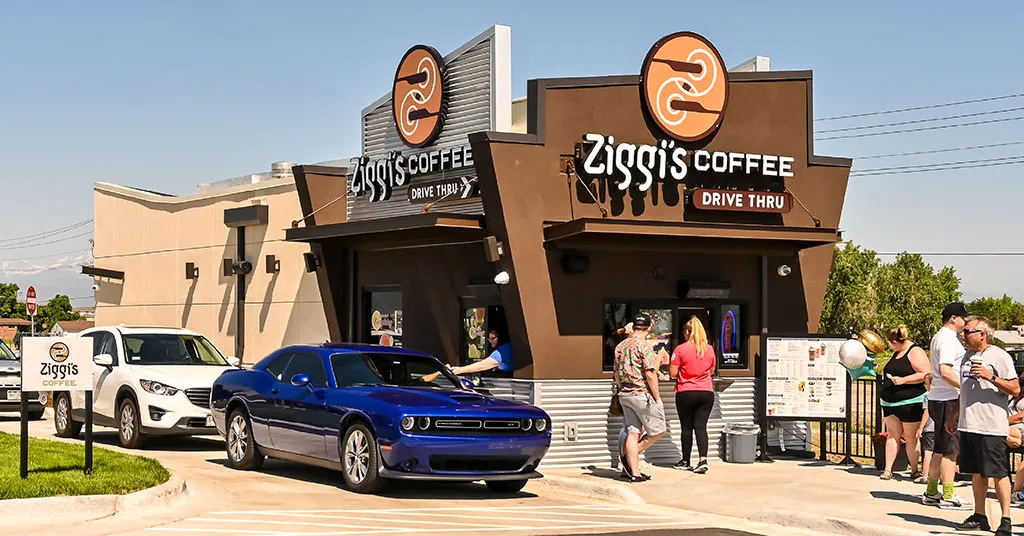
It’s easier on the workers too, he said.
“All of our employees could work in a cafe too,” Knudsen said, “but in a cafe, you’re ‘on’ the whole time.”
Even with Ziggi’s rapid growth, it finds success in staying in its lane, with good coffee and food items. The only major innovations have been new flavors including Red Bull-infused drinks, fun and sometimes quirky promotions, adding food items such as gluten-free burritos, crafting a KidZone menu and developing a mobile app.
“People just like the convenience,” Knudsen said. “We have people using our mobile app to order ahead and just driving through and picking it up.
What really separates us is our speed in our drive-thrus,” he said. He’d like a customer to be able to place an order and then drive away with their drink in 2½ minutes. One and a half minutes would be even better, he said.
“People are tight with their money right now, and being choosier,” Knudsen said. “We’re trying to balance speed with quality. How do we give great service and a variety menu but still get it through quickly, knowing there’s so much competition? People want it quick, but if you forget their whipped cream, they’re frustrated.”
Perfecting that speed of delivery is a way bootstrap independents such as Lift Coffee Bar in Johnstown can compete with the chains such as Starbucks, The Human Bean and Ziggi’s.
“Drive-thru people like that within a quick two, three minutes you’re going to get your coffee and run,” said Eric Holtgraves, a certified public accountant turned passionate coffeeholic.
Like the Knudsens, he came to Colorado from Oregon, where he worked in a coffee shop in the Willamette Valley town of McMinnville.
“I really liked it,” Holtgraves said. “I really liked the fast pace. You impact so many different walks of life. I was also able to help a lot of small businesses as a CPA, and it led me back to do something I wanted to do.”
He noted that “Colorado and Oregon are very similar. Everyone wants to be outside.” His move to this area instead of opening in Oregon made sense, he said, because “it’s a coffee world up there because of the rain and stuff. I’d be competing against the big guys. Human Bean and Dutch Bros. all started there.”
Holtgraves liked Colorado for its “four seasons, snow and 300 days of sunshine,” but especially because when he arrived, “the coffee scene wasn’t here. Other than the big names, there wasn’t really anything.
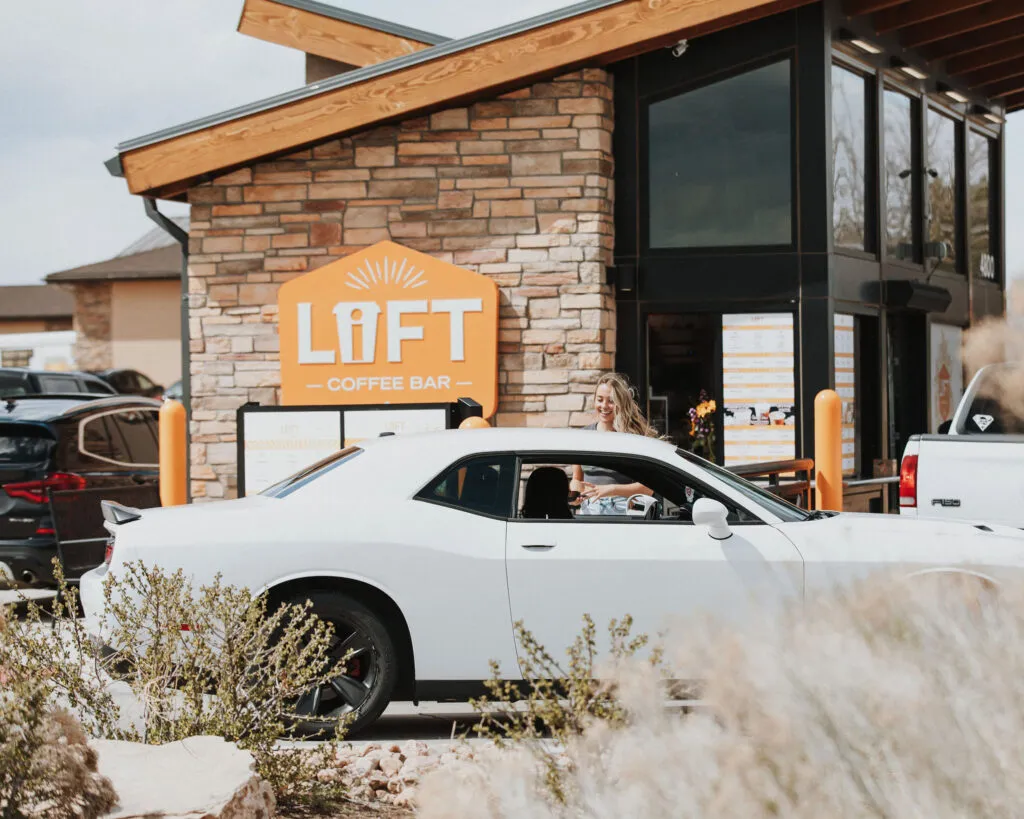
“When I moved here, Starbucks was the main coffee. Their model here was a cafe with a drive-thru. Ziggi’s was only in Longmont, and there were just three Human Beans. The pure drive-thru model just wasn’t here.”
He also accurately predicted what would happen along the Interstate 25 corridor north of Denver.
“You could just see the growth potential. You could see the writing on the wall,” he said, “with commuters before the pandemic traveling from Fort Collins or Greeley to Denver, and families that are busy. And just look at that 2534 development.”
He bought the land at 800 Larimer Parkway for his coffee shop even before the outdoor megastore Scheels announced that it was building nearby, he said. “I didn’t even know what Scheels was. Now they’re a great partner; they bring lots of other companies in, and that’s been great for us. Scheels hosted a ladies night for 800 people on March 24, and we supplied the coffee.”
Each of his employees “has been with me more than a year,” Holtgraves said, noting that they’re mostly students at Colorado State University in Fort Collins or the University of Northern Colorado in Greeley, and most have worked at Lift for two, three or four years.
Like Ziggi’s, Holtgraves said Lift is “looking to grow,” but slowly and carefully. “We want to be very local. Our second location won’t be very far.”
In fact, public records show he has applied with the city of Loveland to add a Lift location on the northwest corner of West 65th Street and North Garfield Avenue in Loveland.
Lift offers hundreds of varieties of drinks, he said, plus energy drinks, smoothies and teas. “We have a drink for everyone,” he said, “and being so small, I can change things instantly. The crew and I are doing all the taste testing.”
His keys to success, he said, are “consistency and customer service. I have a solid team and a very loyal customer base. We want to know your name, your family, your animals, all that kind of stuff.”
Whether a coffee entrepreneur is a one-location owner such as Holtgraves or a franchisee in one of the growing chains, doing business comes with a heavy load of challenges.
Maybe not as challenging as when an alligator recently wandered into a Starbucks drive-thru in North Port, Florida, and had to be unceremoniously removed by first responders.
More like the hurdles any business experiences.
“Labor is very expensive,” Knudsen said, especially since the minimum wage was raised from $13.65 to $14.42 in Colorado.
“Our employees get tips, but we don’t pay a tipped wage, so it’s expensive, for sure.”
Add in the escalating land values as well as post-pandemic supply-chain issues, he said, “and property tax going up on top of that, it’s insanely expensive.
“We didn’t raise prices. We had to eat it,” Knudsen said. “Drinks are not as high as they should be, so it comes straight out of the bottom line for our owners.”
Some chains have protected their margins by “adding more ice and less product, less powder, making what was a 32-ounce drink 30 ounces now,’ he said. “We have not done that and we’re not going to do that, but it’s hard not to think about it.
“This is a penny game. Three or four cents can make a difference.”
He’s also not immune from an increasing difficulty in getting drive-thru locations approved by municipalities that feel pressure from neighbors who envision the long lines of traffic snaking out onto the street from such franchises as In-N-Out hamburger restaurants.
“People want drive-thrus, but they don’t want to see them,” Knudsen said. “I guess they don’t like to stare at people in a drive-thru lane.”
The city of Golden considered banning new drive-thru businesses because the amount of asphalt needed exacerbates the urban heat-island effect, as well as the emissions spewed by vehicles inching forward in line.
“We want people to see the cars in line” at a Ziggi’s, Knudsen said. “That’s great advertising for us. I’d love to get in trouble for having too many cars in line. At our grand openings, we’ll have police to help with traffic.”
Those long lines are common at a Ziggi’s, he said. Ziggi’s aims for its stores to generate $1 million to $1.5 million in annual sales, and have the bandwidth for more.
He’s had more of a unique problem with trying to get a drive-thru Ziggi’s placed along Airport Road near Clover Basin Drive in Longmont.
“The landlord really wants to have a cafe for their apartments and other businesses over there,” Knudsen said, “but from a profitability standpoint, it doesn’t necessarily help our business.”
Still, the drive-thrus keep coming.
Data from Technomic showed the drive-thru chain with the highest customer satisfaction scores are Dutch Bros. Coffee and Peetz Coffee. But small players are gaining a foothold as well.
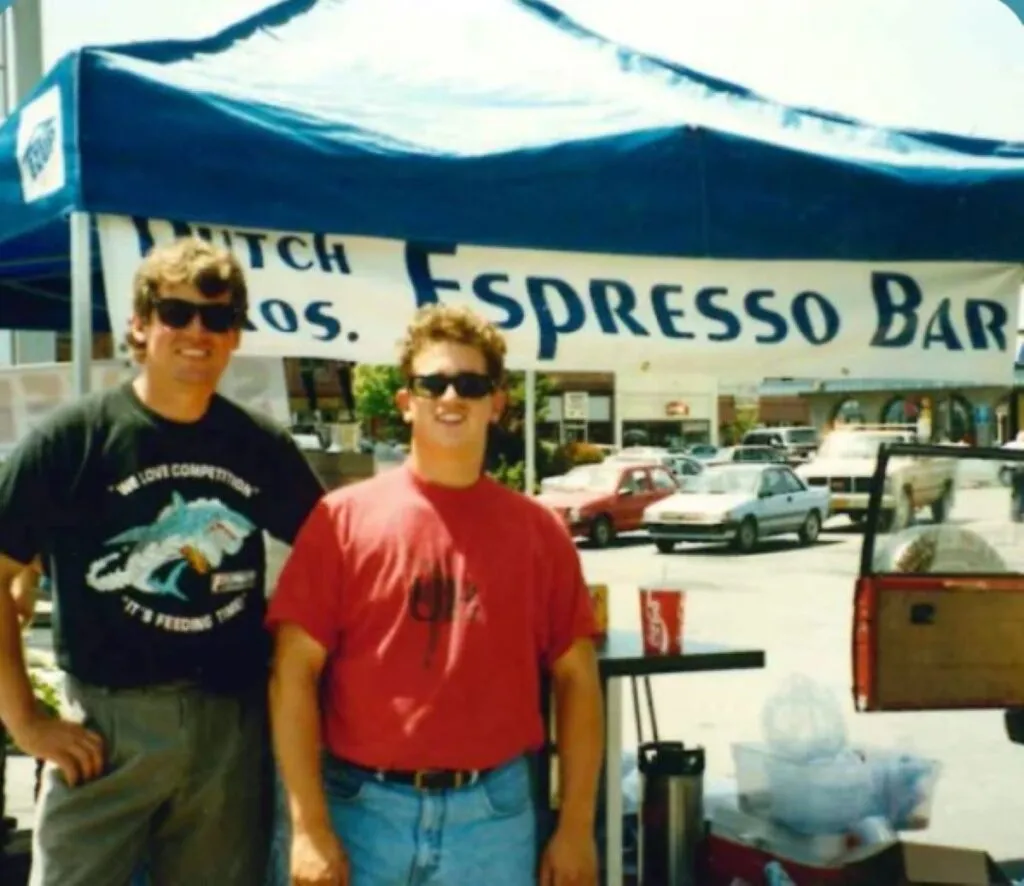
Still Waters Coffee opened last August in one end of a building that houses 23rd Avenue Church in Greeley, founded by a family that chanced upon a remarkable coffee farm while on a missionary expedition in Costa Rica. Family members chipped in to provide everything from construction to artwork.
Blue Mug Coffee was founded in 2011 in Greeley by Art and Karla Long, who met and married in Boulder. Their baked goods are still produced in their original location in the Westlake Village shopping center, but they have since added two other Greeley locations, including one on the city’s west edge where its specialty coffee is roasted in small batches.
The Human Bean, founded in 1998, has more than 260 locations across the country including two in Fort Collins and one each in Evans, Greeley, Loveland, LaSalle, Wellington and Windsor. It places a coffee bean atop every drink it sells, a tradition that started with the first cup it ever served back in Ashland, Oregon.
Scooter’s Coffee, with locations in Broomfield, Eaton and Greeley, was founded in Bellevue, Nebraska, in 1998 by Don and Linda Eckles, who now have more than 700 locations. Its signature drink is the Caramelicious, “a combination of smooth caramel sauce, frothy hot milk, and espresso that’s topped with whipped cream and drizzled with even more caramel.”
Dutch Bros., with locations including stores in Fort Collins, Greeley, Longmont and Loveland, was started in 1992 as a pushcart by the railroad tracks in downtown Grants Pass, Oregon, by brothers Dane and Travis Boersma. Dane Boersma was diagnosed in 2008 with amyotrophic lateral sclerosis, better known as ALS or Lou Gehrig’s Disease. He died from the ailment the next year, and Dutch Bros. stores this Friday will hold its annual Drink One for Dane benefit as a way for its foundation to support research to find a cure for the disease.
Whether the drive-thru’s company is large or small, Knudsen said he would “never discourage someone from opening one because “we started that way. It worked out, but it was really, really hard.”
For independents such as Lift, he said, “you’d better get some consulting, have your game on point, do your homework and know logistics. There are so many moving parts, but it all comes down to having great service in the store every day and knowing how to make a great cup of coffee, but you also have to work on your business as well as in it.”
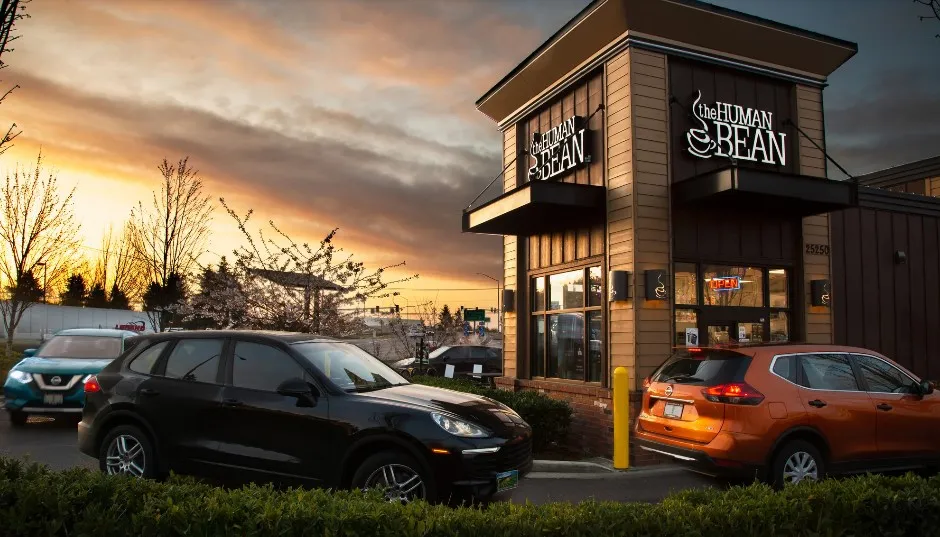
And as Ziggi’s proved, “It’s not a fast ramp-up,” he said. “You’ve got to withstand it and be patient.”
The best part for Ziggi’s, Knudsen said, is that “we’re having a great time. We’re opening nine stores in the next seven weeks, and a lot of the people in senior leadership now started out as baristas. Our very first franchisee opened four more stores, and will open a sixth next year.”
One of those franchisees is the Anderson family, which owns one next to Scheels in Johnstown, close to Holtgraves’ Lift Coffee Bar.
Lift “seems like they’re doing well,” Knudsen said. “They’ve got cars.”
Will all the newcomers to the drive-thru coffee scene in Northern Colorado and the Boulder Valley make it?
“Those drive-thrus with deep roots are going to explode. The ones that are dipping their toe in now, we’ll see,” Knudsen said. “But for those that survive it, when interest rates come down, it’s going to be wonderful.
“If you’re fighting hard right now, it’ll be worth it.”
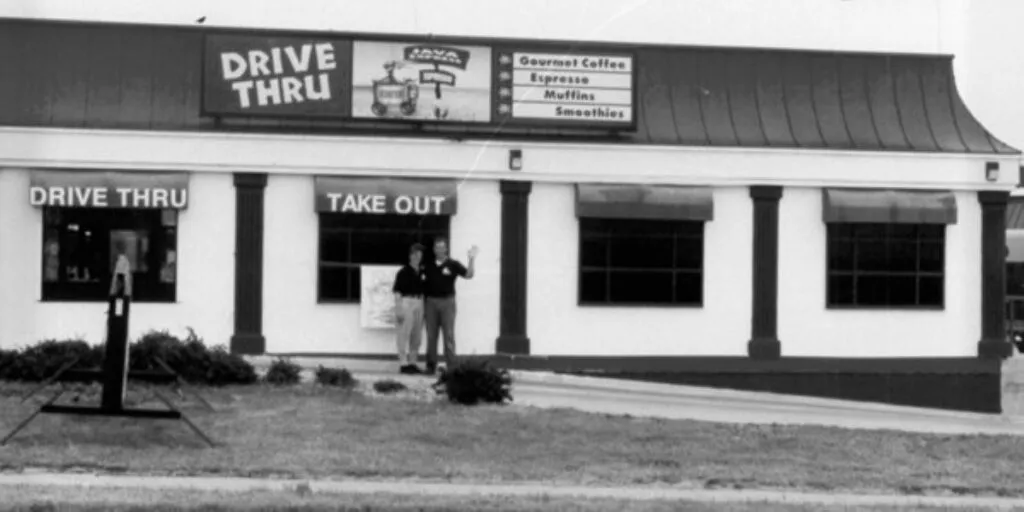
When the COVID-19 pandemic shut down coffee cafes, contactless delivery at drive-thrus boomed, with no end in sight.

